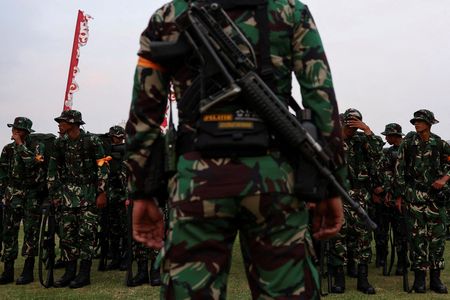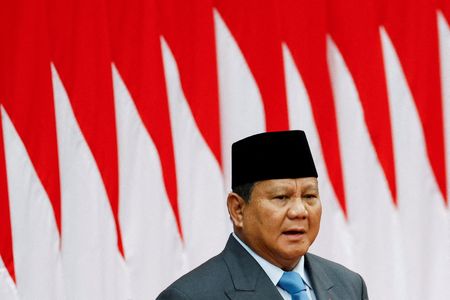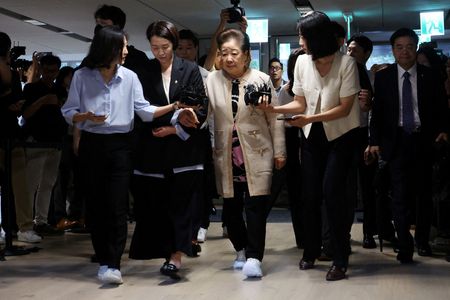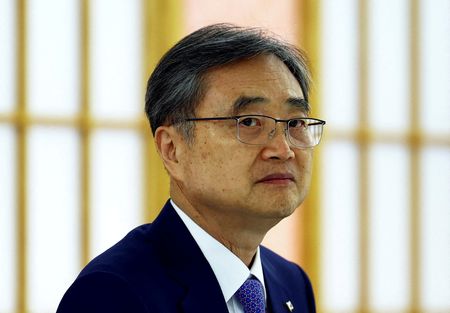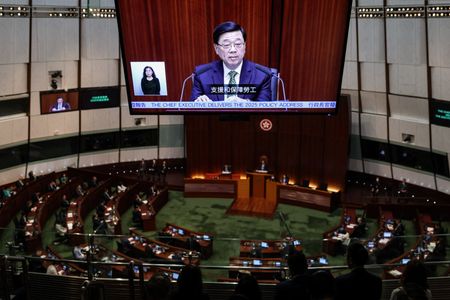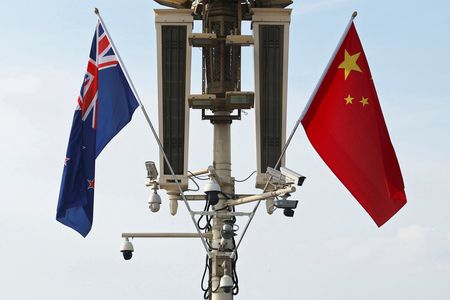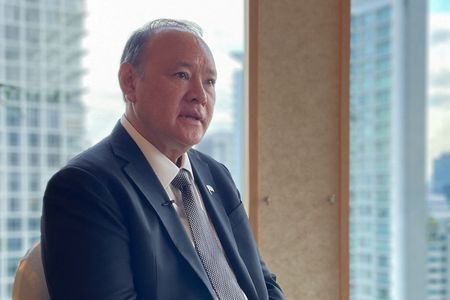By Ananda Teresia
JAKARTA (Reuters) – An Indonesian court ruled on Wednesday that parliament had followed proper process in passing contentious revisions to the country’s military law, rejecting legal challenges to legislation that had sparked protests and condemnation.
The Constitutional Court judges ruled 5-4 in favour of rejecting a petition that said the amendments were bulldozed through parliament in March without proper public consultation, amid wider concerns of an expansion of the military’s involvement in civilian affairs under President Prabowo Subianto.
Fears have been growing in Indonesia that former special forces commander Prabowo is turning increasingly to the armed forces to help deliver his ambitious agenda after just 11 months in office, reviving memories of the military-dominated 1966-1998 New Order era of authoritarian rule.
“We cannot conclude that there was no transparency because the draft of the bill had been disclosed to the public through websites, YouTube channels, and lawmakers had also given interviews,” Justice Guntur Hamzah said in the decision.
The ruling comes at a time of festering anger following two weeks of at times violent demonstrations over issues from lawmakers’ allowances and state budget priorities to police conduct and perceptions of creeping militarisation in Indonesia, presenting Prabowo with his first major test.
Prabowo has appointed former generals to key posts and has deployed the military for various tasks, including handling street protests, implementing initiatives on free school meals and food security, manufacturing medicines and seizing palm oil plantations for a new state-owned firm.
On Wednesday Prabowo named retired general Djamari Chaniago, 77, as his new chief security minister.
The dissenting opinion of four judges was not read out in the verdict, which was delivered virtually with neither plaintiffs nor the public permitted to attend.
CONTENTIOUS LAW
The law had, among other things, increased the number of civilian government departments that military personnel can be posted to.
The petitions against it argued the amendments to Indonesia’s military law lacked transparency and public participation before being passed by a parliament overwhelmingly allied with the president, and had called for the changes to be annulled.
Indonesia law minister has said the legislative process was above board and public input was sought.
Five petitions were filed by human rights and student groups and the daughter of former Indonesian President Abdurrahman Wahid, but only one was considered by the court while the others were ruled as being without standing.
Petitioner Ardi Manto, director The Indonesian Human Rights Monitor, said he would file another complaint challenging the substance of the laws.
Another petitioner, Muhammad Isnur of Indonesia’s Legal Aid Foundation, said the court had failed to fully perform its duty.
“Many facts were ignored by them and four of the judges had dissenting opinion… it’s a sign there was an intense discussion between the judges,” he told Reuters.
“We can see the impact of the military law now, the military feel like they have the legitimacy to do many actions that are against the spirit of military reform and seriously affecting Indonesia’s democracy,” he added.
(Reporting by Ananda Teresia; Editing by Gibran Peshimam and Martin Petty)

